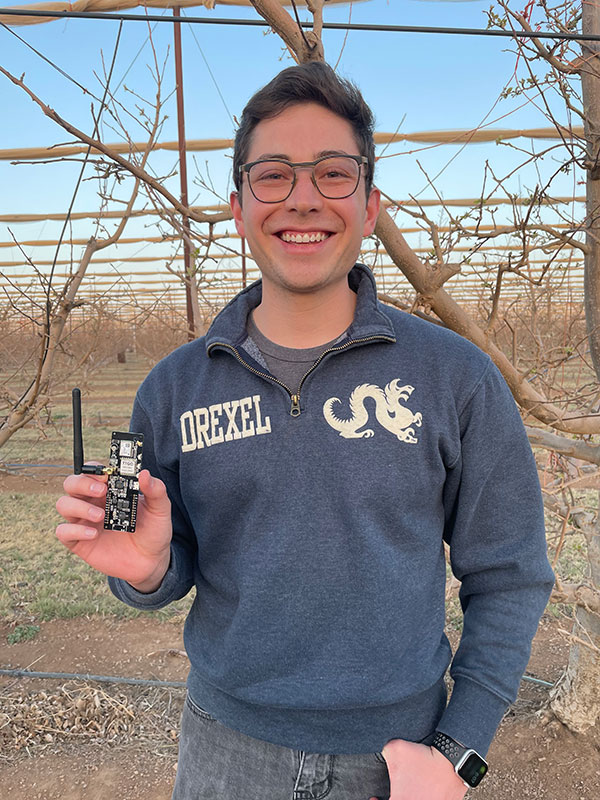Year after year, alumni return to Drexel Engineering, providing mentorship and co-op to students as well as opportunities to bond with the college and its faculty. But a recent collaboration between an alumnus and a faculty member is adding a new dynamic to alumni engagement.

Dante Sawatzky
Apple grower Dante Sawatzky, BS electrical and computer engineering ’18, reached out to Christopher Peters, PhD, teaching professor in ECE, to ask for feedback on real world applications for his 85,000-tree apple orchard in Mexico.
“Temperature monitoring is paramount in agriculture in our region because we have cold waves when our trees are blooming,” Sawatzky says. “Not monitoring temperature effectively in this period of time would lead to these crops dying of frostbite.”
Sawatzky was looking for accurate, scalable temperature monitoring for his orchard, because current market solutions for the task go for thousands of dollars and are not easily scalable. Many growers resort to scattering individual thermometers around their field that have to be read individually. To solve the problem, he reached out to Peters, who he knew from his undergraduate work.
“This is one way we as engineers can contribute positively across the globe.”
Christopher Peters
Temperature monitoring using sensors coupled with new technology for IOT devices are incorporated into Peters’ ECE t380 Sensor Systems Lab course (soon to be ECE 304 Remote Monitoring and Control). Using advice and resources from Peters’ work, Sawatzky was able to quickly research a custom solution and is now fully invested in prototyping his solution. In turn, Peters was able to show his students a real-time, real-world application of their engineering classwork.
"Helping Dante with his effort, even after his graduation, is really rewarding,” Peters said. “The use of low-cost electronics to help remotely monitor fruits and vegetables can help reduce cost to farmers, possibly increase yield, and reduce waste. This is one way we as engineers can contribute positively across the globe. Often, our alumni know what current problems need to be solved in both the short and long term. This is an important way of giving back to the department.”
Sawatzky says that he’s grateful for the opportunity to maintain a bridge back to his alma mater, and for the chance to use knowledge from Drexel to help his community.
"[Peters] provided me with the resources he's been working with for this course and gave me a clear vision for scaling this project to help other growers in my area,” Sawatzky said. “I'm proud to see that Drexel is encouraging courses that give students a foothold in the use of emerging technologies."